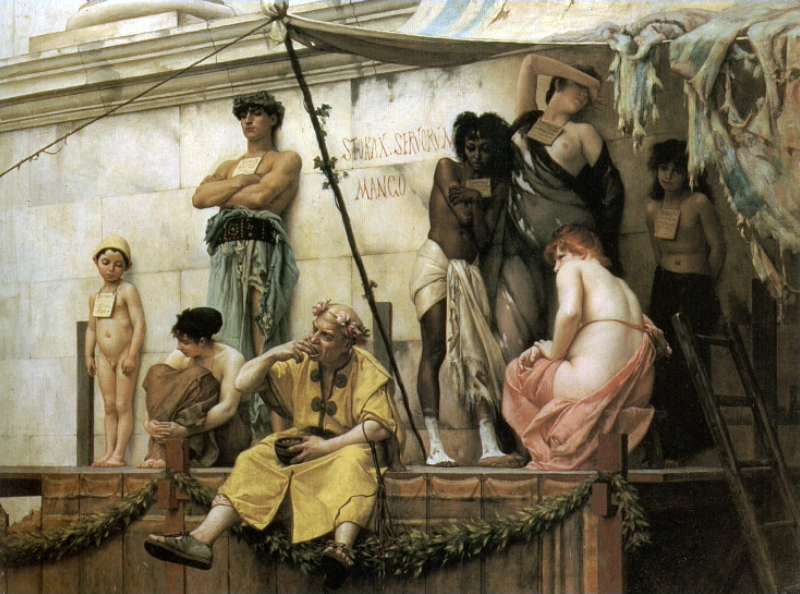
An excellent article on Japans political economy was published this summer in the New Left Review. I am exerpting a few key points here, the whole article is available online and is well worth the read.
It exposes the myth of neo-liberal Japan a fanatasy of American neo-liberals. Japans political economy in the 19th and pre war 20th Century was based on two factors, state capitalism and a subservient economic relationship with Imperialism at that time Britain.
After WWII this formula was successfully applied to its realtionship with the United States. Today Japan gives lipservice to neo-liberalism, but in reality is builidng an Asian accord with China the new economic tiger on the block.
Throughout their half a century of rule—roughly 1868 to the early 1920s—the leaders of Meiji Japan also played a deft and high-stakes game in positioning themselves in a global financial-cum-military order revolving around the City of London. That order saw the machinery of a supposedly neutral universal gold standard working in tandem with the law of comparative advantage to bring about what was touted as a best-of-all-possible-worlds outcome. In fact, the order was managed by the Bank of England and policed by the British Navy. Countries such as Turkey and Egypt that ran out of gold or silver and defaulted on their debts found themselves facing loss of territory and even independence at the hands of the Western powers.
Japan’s leaders were acutely sensitive to the power dynamics that underlay the global financial regime of the time. [5] The rapid draining of gold from the country in the wake of Commodore Perry’s 1854 ‘opening’ had been a proximate cause of the collapse of the shogunate; the domestic gold:silver exchange ratio was 1:5, so out of line with the prevailing international ratio of 1:15 that savvy traders quickly bought up much of the country’s circulating gold coin using its overvalued silver. The entire financial thrust of the subsequent industrialization had as its primary motive the accumulation of gold—or more precisely, the accumulation of claims on gold. For when Japan actually succeeded in acquiring ownership of sufficient gold—extracted as reparations from a prostrate Qing dynasty after the 1895 Sino-Japanese War—to render its credit acceptable abroad, the country’s leaders chose to buy the goodwill of Britain by leaving the gold in the vaults of the Bank of England, rather than bring it back to Japan. The policy was known as zaigai seika—literally, ‘specie kept outside’. It relied on the ability of ‘high-powered money’ (that is, money used to create other money: gold, bank reserves, international reserves) to play two simultaneous roles: in this case, as backing for Japan’s own credit creation and also as part of Britain’s money supply.
Keynes would describe the mechanism in his first major published work, Indian Currency and Finance, when he noted how earnings from India’s surplus trade with Britain that were left in London became part of the domestic money supply there and did not lead to a loss in British purchasing power. Keynes was cited by a later Bank of Japan governor in justifying zaigai seika. The policy would form the financial backdrop for the signing of the Anglo-Japanese Alliance in 1902, which sealed Japan’s admission into the club of nations supporting the existing global order. In 34 years, the country had moved from a poor backwater, whose very future as an independent nation was in doubt, to an important pillar of British hegemony in East Asia and an imperialist power in its own right. The resultant freedom of action, among other things, gave Japan the wherewithal to raise on global markets the funds necessary to wage and win the 1904–05 Russo-Japanese War, which in turn helped lay the groundwork for the Russian Revolution.
As Japan emerged from postwar devastation and launched a renewed drive for industrial growth so dazzling that it acquired the label ‘miracle’, it seemed as if the tale of the Meiji years was being retold. Again, Japan moved in the space of a couple of decades from a poor backwater to a major player, snuggling up to the superpower of the day. Again, it would serve as a crucial military asset for that superpower vis-à-vis the great Eurasian continental—and now Communist—empires. Again, it would leave the proceeds of its export earnings within the superpower’s banking system, providing indirect financial support for the superpower’s ability to project military force. And again its subordination to a financial-cum-political global order managed and policed by the superpower would permit it to sidestep fundamental political questions.
The contemporary Japanese political setup thus resembles a flourishing vine that has grown to great heights, but would likely tumble should the pole around which it twists—the United States—ever itself fail. But the image requires qualification, for not only does the pole support the vine, but the vine has, for the past 35 years, become an increasingly important prop for the pole. The us needs Japan today to a far greater degree than Britain ever did. Japan’s companies manufacture a range of both high value-added components and finished products on which American technological and military supremacy totally depend. Japan’s continued central role in financing the us trade and government deficits and propping up a dollar-centred international order is, as we have seen, the key explanation for Washington’s ability to project and sustain a vast global military establishment without crushing domestic tax burdens. Since the mid-70s, at every crisis point when it has looked as if upheavals in the foreign-exchange market might force the us to live within its means, it has been the Japanese elite that has acted to support the dollar, the Bretton Woods ii regime and, by extension, the continuation of American hegemony. As Mikuni Akio and I have argued, this has not been due to any particular affection for Washington on the part of that elite, but ‘because it identifies its own survival with the continuous build-up of (Japan-owned) dollars in the American banking system’ [8] Any alternative would demand a fundamental reconsideration of the assumptions of the 1955 system, and thus risk fostering another dangerous and debilitating intra-elite struggle.
During the 1990s a sense of realism gradually settled in again after the puffery of the ‘bubble economy’. Japan’s elite came to see that they were facing the first fundamental challenge to their control since 1945. The rest of the world interpreted the problem as primarily an economic one, and indeed it manifested itself in such phenomena as stagnant gnp, rising unemployment, bankruptcies, tottering financial institutions and deflation. But it was at heart a political challenge: how and whether the Japanese system should reconfigure itself to cope with unanticipated new realities in a world where the old methods no longer seemed to work. To mainstream economists in much of the world, the solution to Japan’s troubles seemed obvious: the full-fledged adoption of the institutions of liberal capitalism—corporate governance by outsiders, free trade, a purge of large, unprofitable banks and manufacturers and a sell-off of their assets to those who could manage them for higher returns, transparent markets for labour and corporate control, the busting up of cartels, price setting—for interest rates, the yen, labour, land, food, housing—by markets rather than bureaucrats.
The loudest exhortations along these lines emanated from Washington—ironically, since had Japan actually implemented these policies, the result would probably have been an economy-wide shakeout that would have forced large-scale liquidation of Japan’s dollar holdings and sharply curtailed its ability to prop up a us-centred global financial order. After all, companies and banks left to fend for themselves without the accustomed protection of an all-enveloping bureaucratic system would have come under strong pressure to do everything they could—including selling dollar assets—in order to survive the free-for-all of a market economy. Japan might have emerged on the other side of that shakeout with a stronger economy, as conventionally defined; but in the process its practical support for Bretton Woods ii would have come to an end.
A neoliberal turn?
In responding to these challenges Tokyo followed what, 1931–45 excepted, had been the guiding principle of its foreign policy since the late 19th century: subordination to the global interests of the superpower of the day, in return for a degree of protection and indulgence. Much mainstream Western opinion, however, would misinterpret this reaffirmation of Japan’s place in the American-centred order as a decisive turn to neoliberalism. The misunderstanding is due in part to a mixture of amnesia and wishful thinking. For a decade or more, the financial press, neo-classical economists and Wall Street analysts alike had been predicting the direst of consequences unless Tokyo got religion and adopted all the correct neoliberal reforms. Since the disaster had not happened—Japan’s financial system had not collapsed; its manufacturers continued to dominate several key sectors—perhaps the reforms had been instituted on the sly. In addition, Japan’s elite deliberately fostered the notion that the country had made a turn towards neoliberalism. The language and some actual practices imported from what the Japanese like to call ‘Anglo-Saxon capitalism’ proved useful both in lowering middle-class expectations and in promoting efficiency. The widespread talk of resutora, coined from that Wall Street favourite, ‘restructuring’, plus a few visible foreign takeovers of ailing companies—Nissan Motors; Long-Term Credit Bank—served to concentrate the minds of Japan’s salaried workers and managers, faced with the undreamt-of horror of reporting to foreigners younger than themselves or even losing their jobs. And the neoliberal talk was, of course, music to the ears of a superpower whose attention had been forcibly distracted by events elsewhere.
Indeed, until January 2006 one could get the impression that Japan had become another devotee of Wall Street sermons. Management-fad jargon flowed glibly from the mouths of Japan’s young bankers and business people, ceos talked the talk of shareholder value, mba programmes sprouted in Japan’s universities (I teach in one of them), and m&a was no longer a dirty term. In the wake of a dizzying succession of faceless, in-and-out prime ministers, Koizumi Junichiro emerged in 2001 and put on a convincing act as a reformer determined to drag his country into the 21st century. The White House lapped it up while the left muttered darkly of Koizumi’s subservience to America’s globalist, neoliberal hegemony.
A new third player
In addition, a convincing economic recovery finally seems to be taking root, after several false starts. But will it last? Any disruption to Japan’s export markets could easily derail a recovery since, for all the talk of revived domestic demand, these remain central to Japanese corporate profits and the ability to service debt. Since the early 1950s, exports have been the lodestone of Japan’s growth—most particularly, exports to the United States. While that is still happening, as any glance at Detroit’s woes can attest, equally important in recent years has been Japan’s exports to China—both the physical and the financial kind. China’s hunger for Japanese capital goods, to allow it to produce the exports to feed an American market, permitted Japan’s capital-goods manufacturers to boost capacity-utilization rates to the point where they were making money again. The positive cash flow meant that balance sheets could be strengthened and debt paid down, allowing the banking system to put the worst of the so-called ‘bad loan crisis’ behind it.
China has thus helped alleviate what had come to seem an insoluble problem: the overwhelming pressure on the cost structure of Japanese industry once it joined the ranks of the developed nations. Japan had long sought to preserve what is essentially a ‘late developer’ model: export-led growth; systemic protectionism; severe restrictions on foreign equity; and cartels that funnelled cash into industrial coffers in order to offset the price-cutting necessary to win export markets. But during the 1990s the yawning gap between domestic Japanese prices and those overseas finally sucked in and chewed up cartel after cartel (‘price destruction’ was the term coined by distraught Japanese businessmen), while the collapse of real-estate prices crippled the financial mechanism that had seen cheap financing channelled from household savings to industry. And no matter what was done to shackle market forces, there was no escaping the economic reality of well-trained Chinese willing to work twice as hard as their Japanese counterparts for one-tenth of the wage.
But Japanese industrial leaders found the means of coping with this threat to their way of doing business by undertaking what amounted to a division of labour with China. Both countries engaged in tacit cooperation to support the dollar, permitting Americans to purchase Japan’s high-value added products—automobiles, machine tools, aerospace components—and China’s lower-end products, manufactured largely on imported Japanese equipment. For many Japanese working-class households, the end of job security has been partly alleviated by waves of cheap Chinese imports of food and clothing. The country’s informal economic mechanisms—‘lifetime’ employment, a reluctance of banks to foreclose, mutual assistance between companies in the major business groupings (keiretsu or guruppu gaisha)—have come under strain but continue to function well enough to forestall the final shakeout that so many foreign observers had predicted. The Japanese economic system has survived essentially intact. But this survival has necessitated the acceptance of a third player, whose arrival has introduced a whole new set of problems and uncertainties. Since the mid-1950s, there had been only one really important external task for Japan’s administrators: managing the United States. The security framework provided by the Americans and unrestricted access to the us market had to be protected at all costs; that essentially constituted Japan’s foreign policy. Now, however, an unpredictable China has become part of the picture.
See:
Find blog posts, photos, events and more off-site about:
Japan, economics, political-economy, imperialism, USA, Briatain, China, neo-liberalism, capitalism, state-capitalism, New Left Review







